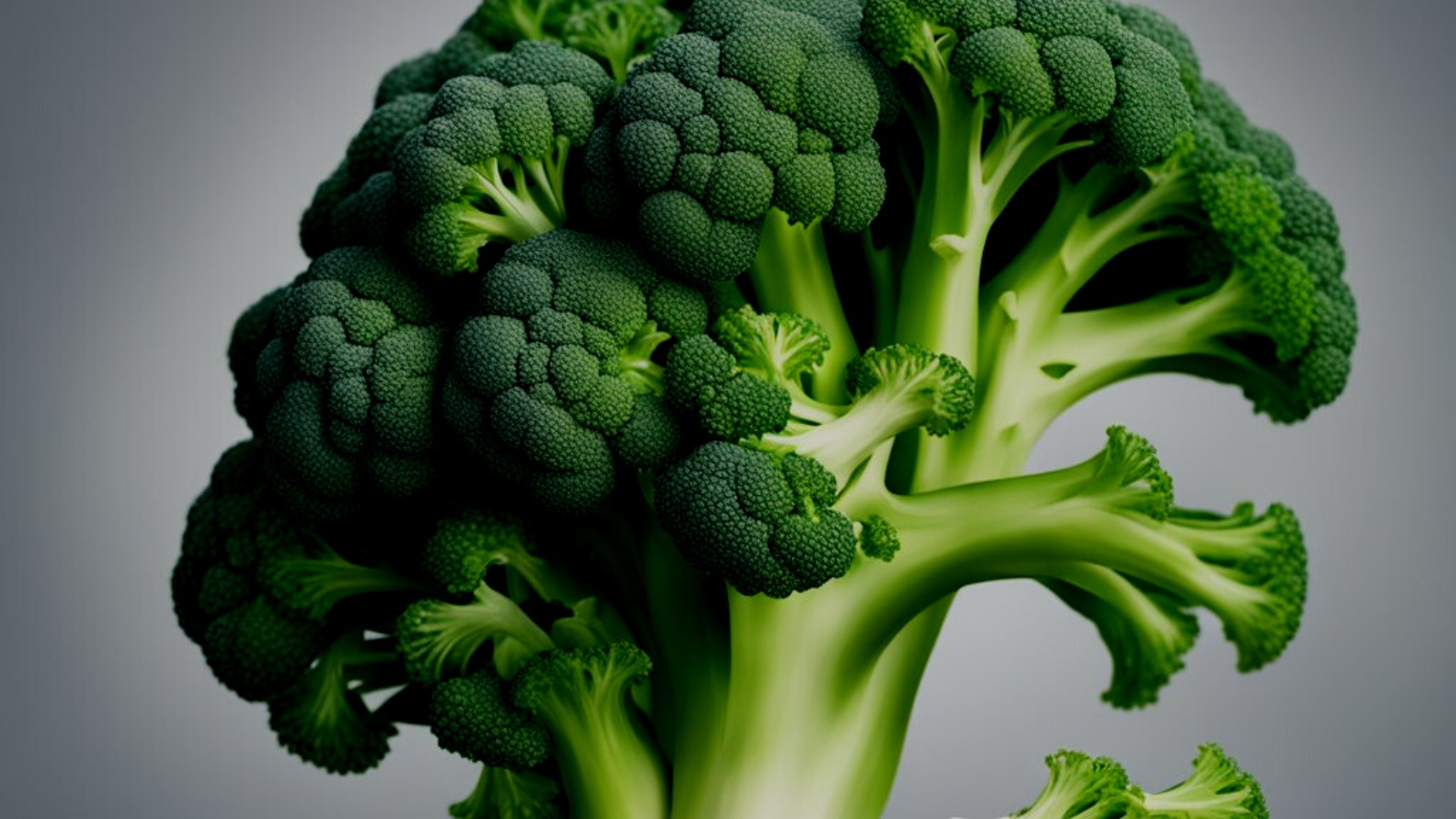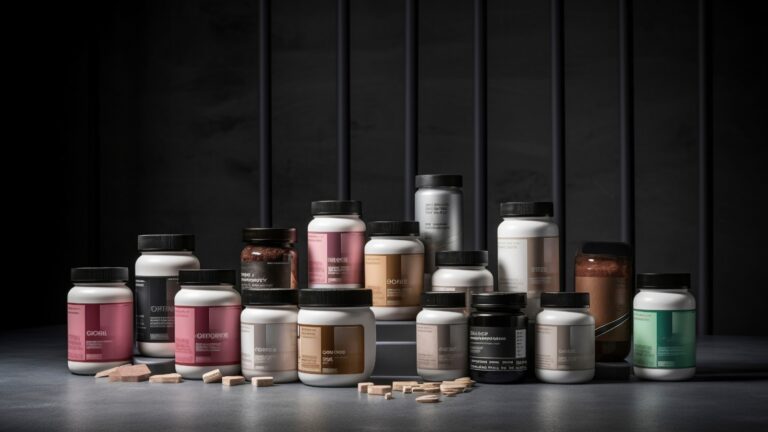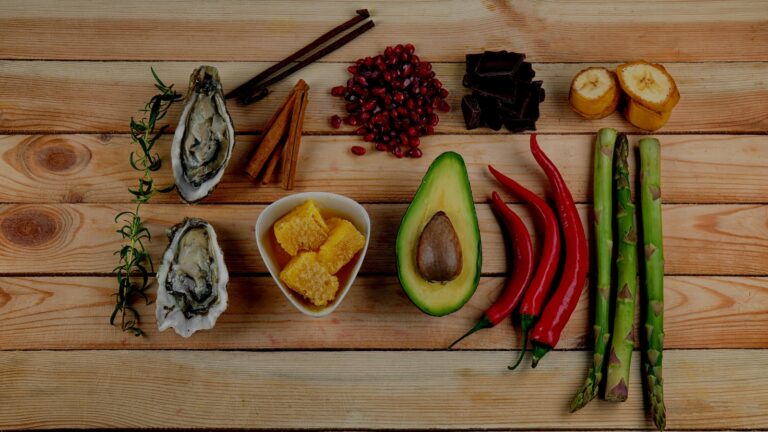Broccoli has long been praised for its numerous health benefits and is often included in diets aimed at promoting overall well-being.
Among the many benefits attributed to this green vegetable, one question that has garnered attention is whether broccoli can have a positive impact on testosterone levels. Testosterone is an essential hormone responsible for numerous functions in the body, and increasing its levels can have a significant effect on various aspects of health, including muscle growth, energy levels, and sexual performance.
As a cruciferous vegetable, broccoli is abundant in vitamins, minerals, and bioactive compounds that have been linked to a wide range of health benefits. Among these compounds are glucosinolates, which possess antioxidant and anti-inflammatory properties, making them valuable in combating oxidative stress and promoting overall health. Recent studies have begun to explore the potential connection between the consumption of broccoli and an increase in testosterone levels. Some research suggests that components found in broccoli may have a positive effect on testosterone production, although the mechanisms behind this effect are not yet fully understood.
So – does broccoli increase testosterone? Let’s dig in to the science…
Key Takeaways
- Broccoli contains numerous health-promoting compounds, including antioxidants and anti-inflammatory agents
- Research has begun to explore the potential link between broccoli consumption and increased testosterone levels
- The exact mechanisms behind broccoli’s potential testosterone-boosting effects are not yet fully understood
Understanding Testosterone
As we dive into the topic of testosterone, it’s important to recognise its vital role in our bodies. Testosterone is a hormone mainly produced in the testicles of men, but also in smaller amounts in the ovaries of women. It plays a significant role in sexual development, muscle growth, and cognitive function.
I have come across a study that suggests that the consumption of broccoli might have a positive effect on testosterone levels. The study found that treatment with different doses of broccoli extract led to an increase in total testosterone. Though these results are promising, it’s important to bear in mind that more research is needed to solidify these findings.
Furthermore, the way broccoli affects testosterone might be linked to its ability to modulate certain enzymes. Another study demonstrated that broccoli induced testosterone hydroxylase activities in the liver, suggesting that it could potentially impact hormone metabolism. However, this impact can vary depending on the specific type of broccoli and its composition.
To summarise, while the research is still emerging, there is evidence to suggest that the consumption of broccoli might have the potential to benefit testosterone levels. Nonetheless, it’s important to adopt a balanced and varied diet, as no single food can single-handedly guarantee optimal hormone levels or overall health.
Broccoli and its Nutritional Components

As a nutrition enthusiast, I often find myself exploring the benefits of various vegetables. One of those, which never fails to pique my interest, is broccoli. This green, tree-like vegetable belongs to the cruciferous family and is well-known for its impressive range of nutrients that contribute to overall health.
Firstly, broccoli is a rich source of vitamins, notably vitamins C, K, and A. Vitamin C acts as a powerful antioxidant, which may help combat oxidative stress. Vitamin K plays an essential role in blood clotting and bone health, while vitamin A supports healthy vision and the immune system.
In addition to vitamins, broccoli contains a variety of minerals, such as potassium, calcium, and magnesium. Potassium can help regulate blood pressure, while calcium and magnesium are important for maintaining strong bones and teeth.
One of the most intriguing aspects of broccoli is its phytonutrient content. These are plant compounds with potential health benefits, and broccoli is packed with them. Among these phytonutrients, sulforaphane stands out for its potential anticancer properties. Furthermore, studies show that broccoli extracts can help increase testosterone levels, which is the primary focus of our discussion.
Apart from these essential nutrients, broccoli is also a great source of dietary fibre. Consuming fibre-rich foods such as broccoli may aid in digestion and promote better gut health.
In a nutshell, broccoli is a nutritional powerhouse, offering a multitude of health benefits. Now that we’ve unravelled its nutritional components, it becomes clear why this unassuming, green vegetable can potentially have a positive impact on testosterone levels and various other aspects of our health.
Broccoli and Testosterone – The Effects
As a dietary powerhouse, broccoli has numerous health benefits, and research suggests it may have an impact on testosterone levels. In a study examining the effects of broccoli and caraway extracts on serum oxidative markers, testicular structure, and sperm quality, it was found that the level of total testosterone increased in rats treated with different doses of broccoli extract.
Another study focused on the proficiency of broccoli juice in recovering testosterone levels in rats with polycystic ovary syndrome (PCOS) induced by Andriol, a form of testosterone. The results indicated that broccoli might be effective in treating PCOS in rats, offering a safe and alternative therapy with minimal side effects.
Moreover, a comparison study demonstrated that broccoli methanolic extract helped protect rat sperm against oxidative damage during the cryopreservation process and significantly increased follicle-stimulating hormone (FSH) and testosterone levels in rats. These findings suggest that consuming broccoli could provide a natural boost to testosterone levels.
It is important to note that while these studies provide promising results, they have been conducted on animals, and more research on the effect of broccoli consumption on testosterone levels in humans is necessary.
Potential Limitations of How Broccoli Can Increase Testosterone Levels
I came across a study that suggests that certain components in broccoli might have a positive influence on serum testosterone levels, but it is essential to address the potential limitations of relying on broccoli to boost testosterone levels significantly. To better understand this, I will discuss some aspects that might affect the efficacy of broccoli in this context.
Firstly, broccoli is rich in various nutrients, vitamins, and antioxidants; however, the concentration of specific testosterone-boosting components can vary widely depending on factors such as the quality of the soil, growing conditions, and preparation methods. It is essential to note that consuming broccoli alone may not be sufficient to provide significant improvements in testosterone levels in men, especially if the vegetable’s quality is poor.
Another aspect of the potential limitations of broccoli in increasing testosterone levels is the need for a balanced diet and an overall healthy lifestyle. A single food item, no matter how nutritious it is, cannot compensate for an inadequate or unbalanced diet. Consuming broccoli alongside other testosterone-supporting foods, such as healthy fats, zinc-rich foods, or vitamin D-rich foods, might be necessary to maximize its effectiveness.
Moreover, there might be individual differences in how people metabolize and absorb the various components found in broccoli. In some cases, individuals might be more or less responsive to these substances due to genetic factors, existing health conditions, or other variables like age, weight, and hormonal levels. Therefore, relying on broccoli as the sole method to improve testosterone concentrations might not lead to desired results for everyone.
In conclusion, while there is evidence suggesting that broccoli might have the potential to improve testosterone levels in some individuals, it is crucial to consider the limitations mentioned above. A more balanced approach, including a wider range of healthy dietary choices, regular exercise, and proper medical advice, is highly recommended for optimal results.







